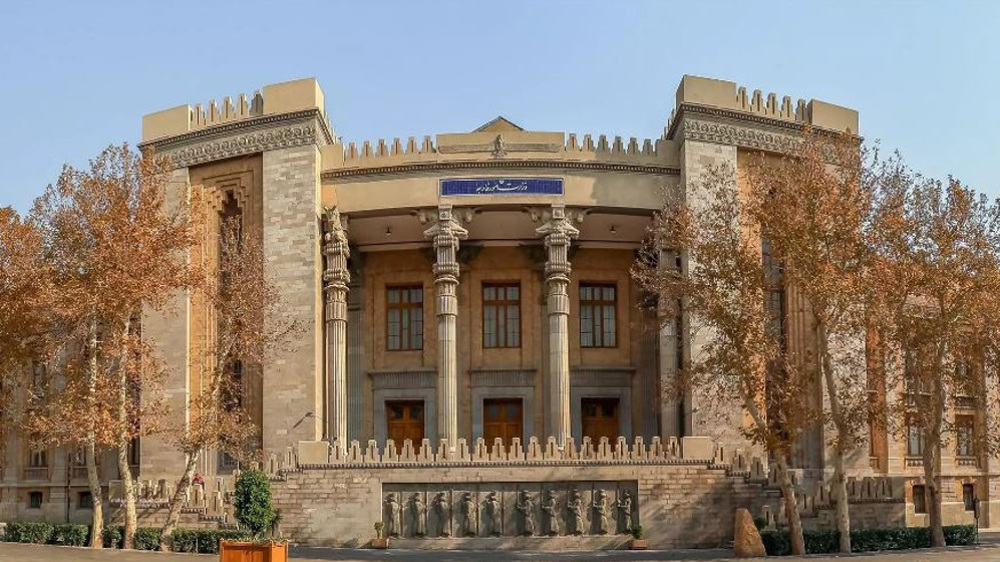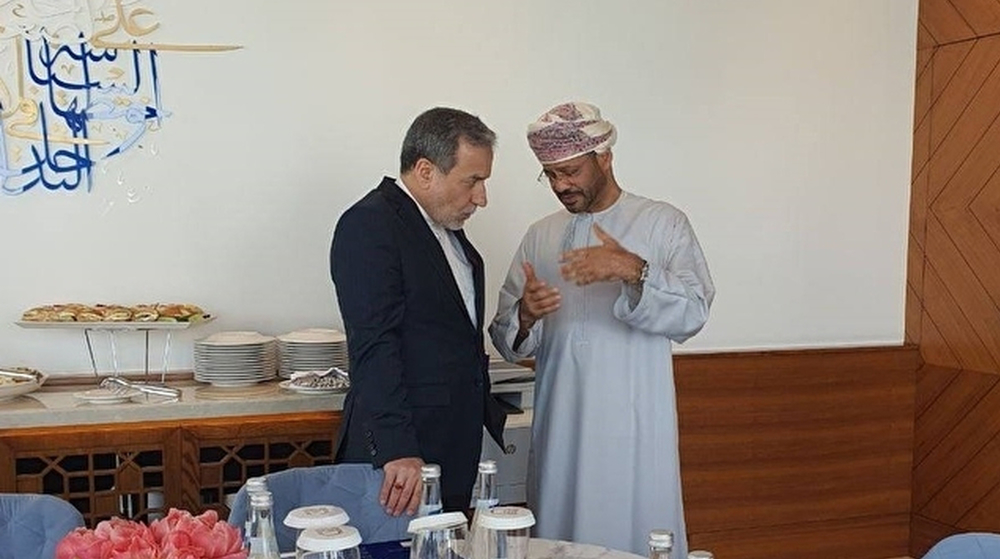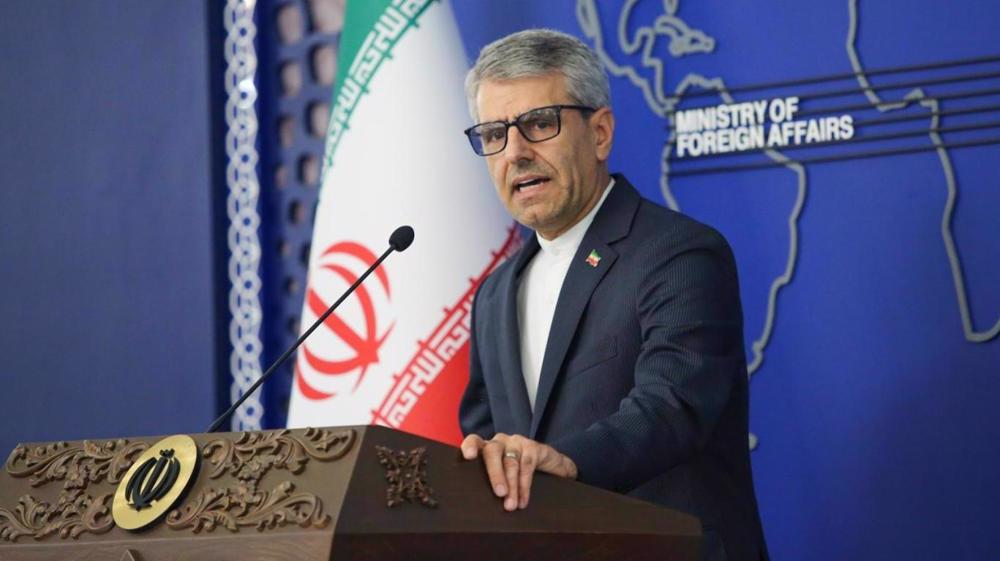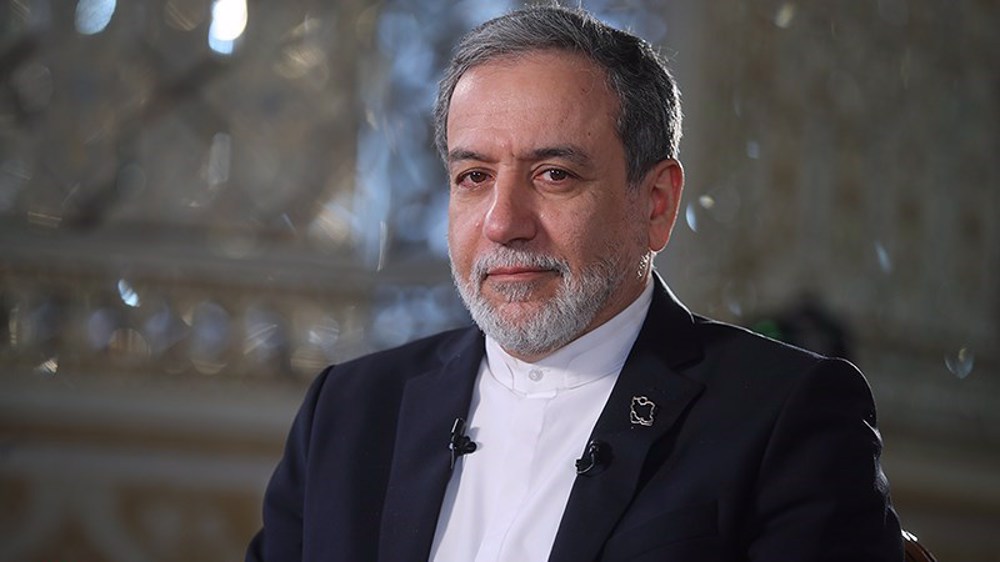Araghchi arrives in Oman for US talks as Iran says termination of inhumane sanctions ‘priority’
Iranian Foreign Minister Abbas Araghchi has arrived in Oman for a new round of indirect nuclear talks with the United States, after both Tehran and Washington said progress had been made in the previous stages.
Heading a diplomatic and technical-expert delegation, Araghchi arrived in Muscat on Friday and met with Omani officials ahead of the talks.
Indirect negotiations between Iran and the United States over Tehran’s peaceful nuclear program will resume in Muscat on Saturday. The talks were mediated by Omani Foreign Minister Badr bin Hamad al-Busaidi.
Experts on both sides will start hammering out the technical details of a possible deal to replace the 2015 nuclear agreement, formally known as the Joint Comprehensive Plan of Action (JCPOA).
Iranian Deputy Foreign Minister for Political Affairs Majid Takht-Ravanchi and Deputy Foreign Minister for Legal and International Affairs Kazem Gharibabadi will lead the Iranian technical team. Michael Anton, who serves as the State Department's head of policy planning, will lead the technical discussions on the US side.
‘Speedy termination of inhumane sanctions priority’
Meanwhile, Iranian Foreign Ministry spokesman Esmaeil Baghaei said Tehran’s priority in the indirect talks with the US is the termination of unlawful and inhumane sanctions in an objective and speedy manner.
In a post on his X account on Friday, Baghaei pointed to the beginning of the third round of Iran-US talks as of tomorrow morning and said, “Termination of unlawful & inhumane sanctions in an objective and speedy manner is a priority that we seek to achieve.”
FM @Araghchi and his accompanying delegation arrived in Muscat for the third round of Iran-U.S. talks to be mediated by Omani FM Al-busaidi as of tomorrow morning.
— Esmaeil Baqaei (@IRIMFA_SPOX) April 25, 2025
We are resolved to secure our nation's legitimate & lawful right to use nuclear energy for peaceful purposes while… pic.twitter.com/RzGaG2XVMj
He expressed Iran’s firm determination to secure the Iranian nation’s “legitimate and lawful right to use nuclear energy for peaceful purposes.”
The spokesperson, however, added that Tehran is also ready to take “reasonable” steps to demonstrate that its nuclear program is entirely for peaceful purposes.
“We'll see how serious & prepared is the other side to go for a fair and realistic deal,” Baghaei said.
Earlier on Friday, Baghaei said progress in the Iran-US talks requires the demonstration of goodwill, seriousness, and realism by the other side.
Araghchi and United States President Donald Trump's envoy Steve Witkoff led two rounds of indirect talks on Iran’s nuclear program and the termination of US sanctions in Muscat and the Italian capital, Rome, on April 12 and 19.
Witkoff was in the Russian capital Moscow on Friday and met with President Vladimir Putin to discuss the Ukraine war.
Expert-level discussions on the technical details of a potential replacement to the JCOA were originally scheduled for April 23. However they were postponed to April 26, the date set for the third round of the indirect negotiations.
During his first term in office, Trump withdrew the United States in 2018 from the JCPOA and launched a maximum pressure campaign against the country.
Trump restored that policy after returning to the White House for a second term in January, but he has since signaled a willingness to make a new deal to replace the deal.
On March 12, Trump sent a letter to Iran’s leadership, asking for negotiations to reach a new deal.
Iran has ruled out direct negotiations with the US under pressure and threats.

Iran warns US it will never accept threats, pressure in talks

Fourth round of Iran-US talks postponed for 'logistical reasons'

Iran warns US of 'destructive effects' of new sanctions on indirect talks
Six students suspended at US college over pro-Palestinian encampment
US House set to vote on bill of fines, prison for boycott of Israel
US approves $3.5 billion arms sale to Saudi Arabia ahead of Trump’s visit
US greenlights $310mn deal for Ukraine’s F-16 training, sustainment
VIDEO | Trump signals no change to Ukraine policy with new arms, minerals deal
VIDEO | Thousands of people cast ballots in Australia’s general election
VIDEO | Story of Feryal Ahmed: Orphaned and disabled
VIDEO | Gaza flotilla attack







 This makes it easy to access the Press TV website
This makes it easy to access the Press TV website